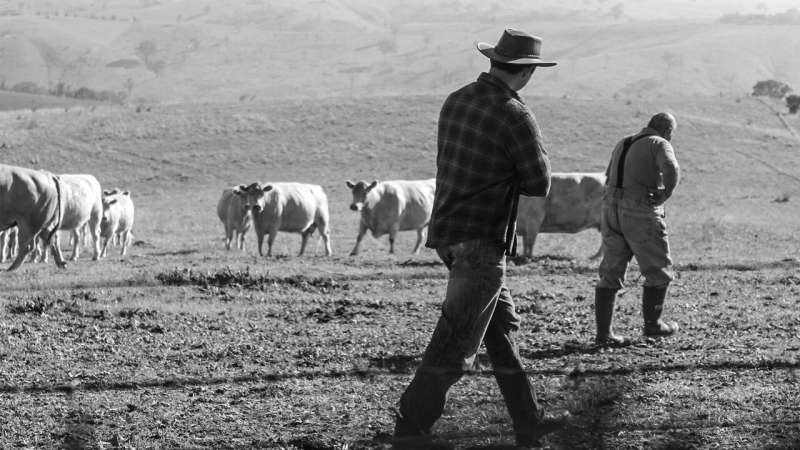America's farmers are getting older, and young people aren't rushing to join them

On Oct. 12, National Farmers' Day, Americans honor the hardworking people who keep the world fed and clothed.
But the farming labor force has a problem: It's aging rapidly.
The , according to the most recent data from the U.S. Department of Agriculture. That's up sharply from 1978, when the figure was .
, we wanted to understand this trend and its implications. So we .
Amber waves of graying
We found that the average age of farmers was fairly consistent across the country, even though the varies quite a bit from place to place.
For example, the is just a few months older than the , even though the average Maine resident is than the average Utahn.
To be fair, we did find some local differences. For example, in New York County—better known as Manhattan—the average farmer is just north of 31. Next door in Hudson County, New Jersey, the average farmer is more than 72.
On the whole, though, America's farming workforce is getting older. If the country doesn't recruit new farmers or adapt to having fewer, older ones, it could put the nation's food supply at risk. Before panicking, though, it's worth asking: Why is this happening?
A tough field to break into
To start, there are for young people—at least those who weren't born into multigenerational farming families. It takes money to buy the land, equipment and other stuff you need to run a farm, and younger people have than older ones.
Young people born into family farms may have fewer opportunities to take them over due to . And those who do have the chance may not seize it, since they often report that than living in a city or suburb.
The is also a concern: Farmers are often at the mercy of weather, supply shortages, volatile markets and other factors entirely out of their control.
In addition to understanding why fewer younger people want to go into agriculture, it's important to consider aging farmers' needs. Without younger people to leave the work to, farmers are left with intense labor—physically and mentally—to accomplish, on top of the ordinary challenges of aging.
In other words, the U.S. needs to increase opportunities for younger farmers while also supporting farmers as they age.
Opportunities to help
The USDA to , as well as , and those who . Expanding these programs' reach and impact could help bring new talent into the field.
Congress could do just that when it reauthorizes the farm bill—a package of laws covering a wide range of food—and agriculture-related programs that get passed roughly every five years.
The farm bill also includes and funds and , all of which could help meet the needs of young and aging farmers alike. Notably, the offers programs that range from and youth development, including introduction to agriculture, to providing on-site technical help.
Congress was supposed to reauthorize the farm bill by Sept. 30, 2023, but it . It now faces a new deadline of Dec. 31, but due to dysfunction in the House of Representatives, many expect the process to drag on into 2024.
Also in 2024, the USDA will release its next , giving researchers new insight into America's farming workforce. We expect it will show that the average age of U.S. farmers has reached a new all-time high.
If you believe otherwise—well, we wouldn't bet the farm.
Provided by The Conversation
This article is republished from under a Creative Commons license. Read the .![]()





















